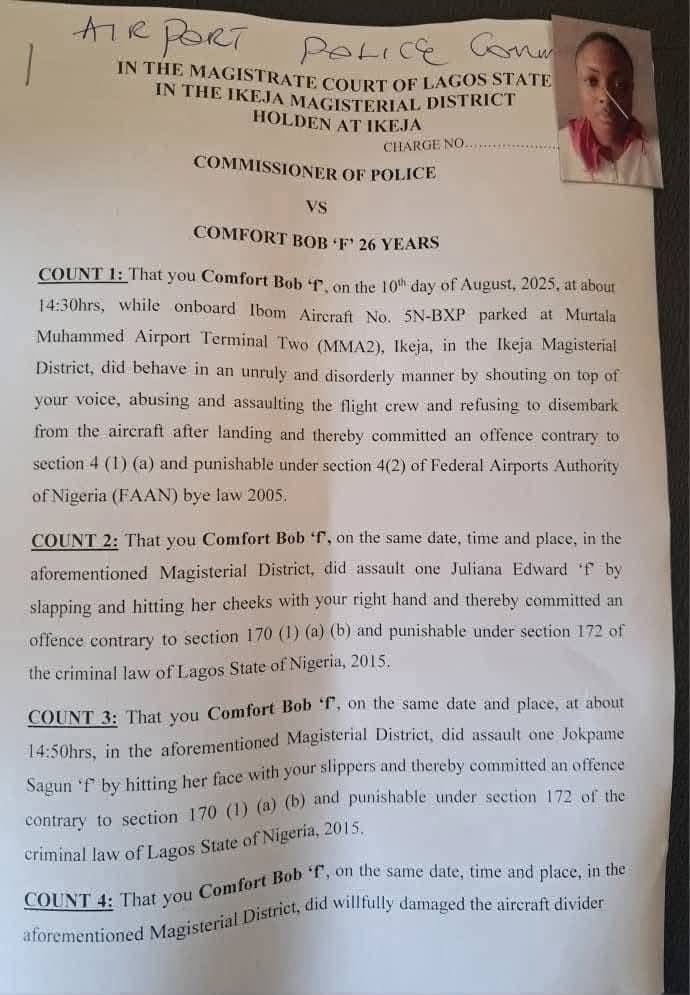
The remand of a female passenger over an unruly incident aboard an Ibom Air flight has ignited a fierce debate about justice in Nigeria. Critics are calling it a clear case of selective justice, where treatment differs drastically based on a person’s influence or status.
On August 10, a woman identified as Comfort Emmanson erupted in anger on a flight from Uyo to Lagos after being asked to switch off her mobile phone—a standard aviation safety requirement. Witnesses say she refused, even as another passenger turned off the phone, triggering her violent outburst. She allegedly assaulted the purser and attempted to use a fire extinguisher as a weapon, prompting security to intervene.
Following landing, Emmanson was arrested, charged in court, and remanded at Kirikiri Correctional Centre in Lagos. Ibom Air announced a lifetime ban on her flying with them, while the Airline Operators of Nigeria (AON) extended the ban across the entire fleet of its members.

Human rights activist Aisha Yesufu condemned the severity of Emmanson’s treatment:
“We cannot have a nation where we have two justice systems… That is unacceptable.”
She emphasized the distinction in treatment between Emmanson and more influential figures like Fuji musician Kwam 1 and former Governor Oshiomhole, who faced no such consequences. Yesufu also decried how Emmanson was publicly dragged and partially exposed—calling it “sexual harassment” and deliberate public humiliation.
Similarly, former Labour Party candidate Peter Obi labeled the incident as “rascality and abuse” by security agencies, insisting justice must be fair and not reserved for the powerful. He questioned why more notorious offenders, like Kwam 1, were shown leniency while Emmanson was remanded without hesitation.
Legal heavyweight Dr. Monday Ubani (SAN) also objected to AON’s indefinite no-fly ban on her—a punitive decision taken without judicial review, violating constitutional rights such as fair hearing.
Aviation Minister Festus Keyamo condemned the distribution of indecent footage showing Emmanson’s exposed body, calling it a violation of human dignity. He directed sanctions against staff responsible, and also recommended training for staff and improved protocol, alongside a joint security meeting with relevant aviation authorities.
Meanwhile, the Federal Airports Authority of Nigeria (FAAN) promised to tighten enforcement against disruptive passengers, emphasizing that safety cannot be compromised.
What began as an airline disturbance has escalated into a national debate on justice and equality. The severity of Emmanson’s treatment has sparked demands for systemic reforms, challenging Nigeria’s legal and moral compass. Will the outrage trigger long-overdue accountability, or is this yet another moment of pressure that fades once public attention wanes?
SEE FULL VIDEO OF THE ASSULT